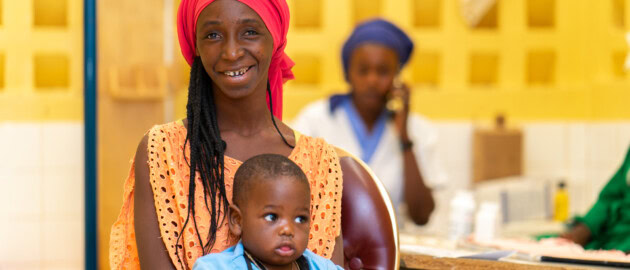In 2017, approximately 295,000 women around the world died due to pregnancy-related causes.
In 2019, almost 2.4 million newborns died in their first 28 days of life. The global share of under-five deaths occurring during the neonatal period is increasing — 46% of all child deaths occur in the first month of life, up from 41% in 2000.
Women who live in low- and middle-income countries and who do not have the resources they need for a healthy pregnancy and birth are at particular risk.
Many of these women are ill-equipped to meet the special nutritional needs of pregnancy, due to:
- Inadequate diets
- Inadequate access to maternal nutrition services and information
- Inadequate access to vital health services
To deliver cost-effective impact, nutrition interventions must be tailored to the needs and realities of women in their communities.




